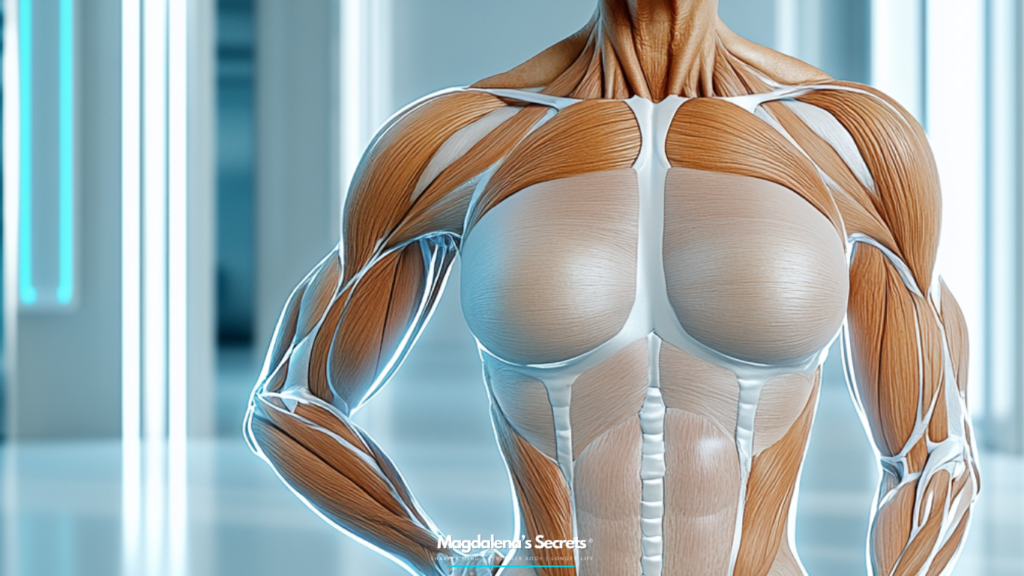Losing strength with age? It’s not just time ticking by — it’s biology, and estrogen is at the center of it. While most women expect some physical changes during menopause, few realize just how deeply hormonal shifts impact muscle mass and metabolism.
And the truth is, it starts earlier than you think.
The Estrogen-Muscle Connection
Estrogen does more than regulate your cycle. It’s a powerful hormone that influences muscle repair, energy metabolism, neuromuscular signaling, and fat distribution. As estrogen declines during perimenopause (as early as your mid-30s), your body begins losing its natural ability to build and preserve lean muscle.
According to OB-GYN and Galveston Diet creator Dr. Mary Claire Haver:
“Women start gaining belly fat and losing muscle not because they’re doing something wrong, but because their hormones are changing. Estrogen protects muscle — and when it’s gone, everything shifts.”
Why Muscle Matters More Than Ever
Muscle is not just about looking fit — it’s a vital organ for metabolism, mobility, insulin sensitivity, and even hormone balance.
Without proactive intervention, women lose up to 8% of muscle per decade after age 30, and this loss accelerates after menopause.
Consequences of muscle loss include:
- Slower metabolism and stubborn weight gain
- Higher risk of type 2 diabetes and insulin resistance
- Poor balance and mobility
- Osteoporosis and joint weakness
- Fatigue and reduced stamina
Your muscle is your longevity currency — and estrogen is one of its greatest allies.
What You Can Do: Reclaim Your Strength
Menopause-related muscle loss isn’t inevitable. Here’s how to stay strong, lean, and energized through your transition:
1. Strength Training Is Non-Negotiable
Muscles need to be challenged to grow. Aim for 2–4 sessions per week, using:
- Dumbbells or barbells
- Resistance bands
- Bodyweight exercises (squats, lunges, push-ups)
- Pilates or yoga with a strength focus
Progressive overload — gradually increasing the weight or intensity — is key.
2. Prioritize Protein Intake
As estrogen declines, protein synthesis slows — meaning you need more protein to maintain the same results.
📌 Aim for 1.2–1.6g of protein per kg of body weight daily, spread evenly across meals to optimize muscle recovery.
3. Consider Bioidentical Hormone Therapy (When Appropriate)
BHRT, when used responsibly under medical guidance, may help preserve lean mass, improve energy, and slow fat gain.
Talk to a provider who specializes in menopause care, not just general medicine.
4. Protect Your Sleep and Recovery
Muscles rebuild while you rest. Menopause often disrupts sleep, so optimize your routine:
- Consistent bedtime
- Cool, dark room
- Magnesium glycinate or melatonin (if needed)
- Wind-down rituals and no screens before bed
Final Thoughts: Strength Is a Menopause Superpower
If your body feels unfamiliar, if your workouts aren’t working, or if your shape is changing despite your efforts — it’s not your fault.
It’s estrogen.
But now that you know the science, you have the power to take action.
Menopause isn’t just about symptoms — it’s about restructuring your biology for the decades ahead. And muscle is the cornerstone of that future.
With resistance training, smart nutrition, and expert support, you can stay strong, energized, and confident — at every stage of the journey.
Your hormones may change. Your strength is yours to reclaim.




